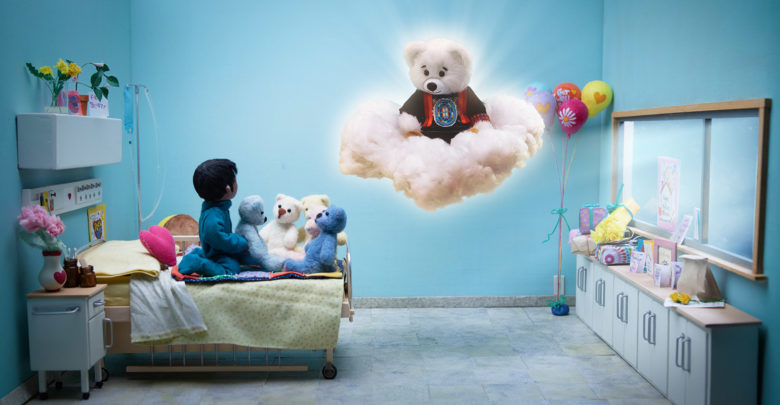Film Review: Spirit Bear and Children Make History
The film tells the story of Canadian children standing up for the well-being of Indigenous children during the Canadian Human Rights Tribunal On First Nations Child Welfare
 Spotted Fawn Productions
Spotted Fawn ProductionsThe short stop-motion film Spirit Bear and Children Make History, based on the children’s book of the same name, tells the story of Spirit Bear and his journey to Ottawa, Ontario to stand up for Indigenous kids.
Spirit Bear and Children Make History, though initially meant for children, tells a story that everyone should listen to. Through beautifully done stop-motion, the film takes the viewer through the real human rights case for Indigenous children at the Canadian Human Rights Tribunal.
In 2016, nine years after the trial began, the Tribunal ruled that the Government of Canada was racially discriminating against 165,000 Indigenous children through the failure to provide equitable public services and the underfunding of child welfare.
The film begins with the bear’s journey to Ottawa once his mother tells him about the Canadian Human Rights Tribunal taking place. Once in Ottawa, he plans to observe the Tribunal taking place.
Upon arriving in Ottawa, Spirit Bear learns about the Algonquin First Nations peoples, who are Indigenous to the land Ottawa is on. Ottawa’s name is derived from the Algonquin word adàwe, meaning “trade.”
Spirit Bear meets with his friend Cindy, who in the film is portrayed as a sheep. She is also present to observe the Human Rights Case. Cindy lets Spirit Bear know that Indigenous people from all across the nation are here to watch the Tribunal, but she wishes more people were there to help.
As Cindy and Spirit Bear sit in the hearing room, Cindy explains to Spirit Bear that Indigenous groups hope that Indigenous children and families will get the help they need from child welfare services through this Tribunal. She also tells him about Jordan River Anderson, who was from Norway House Cree Nation Manitoba.
Anderson was born in October 1999 with serious health conditions. When Jordan turned two, doctors decided Anderson could go home from the hospital if he had medicines and helpers to maintain his health. That cost money, and the governments of Manitoba and Canada could not agree on which one should pay, due to Anderson being an Indigenous child. This disagreement between jurisdictions took so long that Jordan got sick again, and passed away.
This caused the creation of Jordan’s Principle, which states arguments between jurisdictions should not interfere with children getting the assistance they need.
While Cindy and Spirit Bear are waiting in the hearing room, groups of high school students join them to come to observe the Tribunal taking place and see how they can help.
The characters in the film wait years as the trial continues. By 2014, the Tribunal hearings are over, and the next step is to wait for the Tribunal’s decision. After nine years, the Tribunal ruled Indigenous children must get proper funding for the help they need. The film concludes with Spirit Bear getting an honorary “Bearrister” degree for his “courageous support and bearing witness throughout a long and difficult process of truth-telling and healing.”
Spirit Bear and Children Make History uses impressive stop-motion to explain how children throughout Canada stood up for the well-being of First Nations children by educating themselves on topics of injustice, and taking meaningful action for change.




